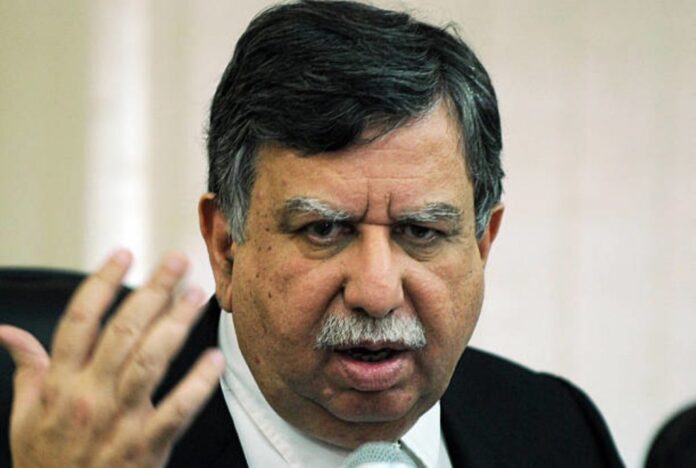ISLAMABAD: Federal Minister for Finance and Revenue Shaukat Tarin has said that the government has introduced the largest-ever economic stimulus package of Rs1.24 trillion for Small & Medium Enterprises (SME) to shield them against insolvency during the COVID-19 pandemic.
He stated this while delivering his remarks on behalf of Pakistan at a virtual event held on the sidelines of the 77th session of the United Nations Economic and Social Commission for Asia and the Pacific (UNESCAP). The talk was titled “Debt Relief in the Aftermath of the Pandemic: How can Regional Dialogue help”.
In his virtual remarks, the finance minister apprised the forum about the economic challenges faced by Pakistan due to the COVID-19 pandemic.
“Due to the precarious economic situation in 2018, the government of Pakistan had to opt for an IMF programme to fix the balance of payments crisis,” he said. “Pakistan successfully met all benchmarks during first performance review criteria while all fundamental economic indicators reflected significant improvement before the onset of COVID-19,” Train added.
He further stated that unfortunately, the COVID-19 shock resulted in considerable economic contraction leading to loss of livelihoods, disruption in supply lines and limited economic activity during partial lockdowns.
“To lessen the severe impact on the economy, the government of Pakistan introduced the largest-ever economic stimulus package for SMEs to shield against insolvency and facilitated the construction sector and allied industries to stimulate growth during testing times,” according to Tarin.
He apprised the forum that 16 million families were given direct cash transfers under the Ehsaas programme which roughly accounts for 46 per cent of the total population of Pakistan in order to protect the most vulnerable segments of the society.
The finance minister further said that at present, Pakistan had resumed the IMF programme and was faced with a difficult choice to strike a balance between the need for fiscal consolidation and ever-rising demand for economic stimulus amid COVID-19 and in the post-COVID scenario.
“The third wave of COVID-19 is particularly challenging and Pakistan needs the support of development partners to stimulate recovery,” he said. The economy is showing nascent signs of recovery as Large Scale Manufacturing is posting significant growth but there is a need to continue this momentum which is not possible without external support, he added.
The finance minister of Maldives as well as high-level delegates from Mongolia and the Kyrgyz Republic also participated during the session. Other delegates highlighted the need for evolving a mechanism to provide maximum debt relief to the developing and under-developed countries which are facing fiscal constraints and liquidity crises during the pandemic.
The session concluded that there was a need for continued regional dialogue to learn from country experiences and thereby face challenges posed by the pandemic in a better manner.




